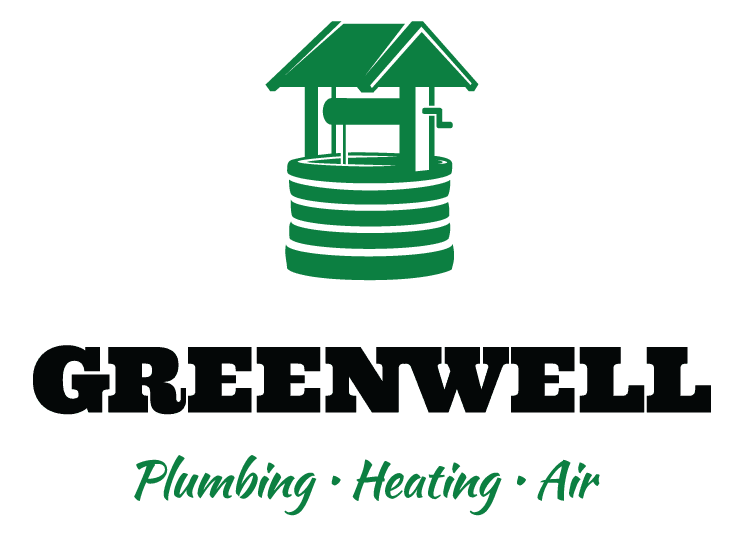How Does a Hot Water Heater Work?
When your hot water suddenly disappears, it’s easy to panic. Cold showers, unwashed dishes, and unexpected expenses can leave you feeling overwhelmed. That’s why understanding how the different types of water heaters work is so important. Even in an emergency, having a basic idea of how your system functions can help you make faster, more confident decisions, whether you need a water heater repair or a complete replacement.
At Greenwell Plumbing, we help homeowners throughout Louisville, Kentuckiana, and Columbus, IN stay prepared with reliable service and helpful information. This guide explains how hot water heaters work, what components matter most, and what to expect when something fails.
How a Hot Water Heater Works
A water heater’s job is simple: heat cold water and deliver it to your taps, showers, and appliances when you need it. Most systems operate using a few essential parts that work together behind the scenes.
Common Water Heater Components:
- Tank or heat exchanger, where water is heated or stored
- Heating element or gas burner, the source of heat
- Thermostat, which controls the temperature of the water
- Dip tube, which delivers cold water into the tank
- Anode rod, which protects against rust and corrosion
- Pressure relief valve, which prevents dangerous pressure buildup
- Drain valve, used for flushing or draining the tank
When any of these parts fail, you might need hot water heater repair. But if the tank itself is corroded or leaking, replacing the water heater may be your only option.
Storage Water Heaters
Storage water heaters are the most common type in homes across Kentuckiana. These systems hold hot water in a large, insulated tank, heating it continuously so it’s ready when you need it.
Main components and what happens if they fail:
- Tank: If leaking, full water heater replacement is needed
- Heating element or burner: Can typically be replaced during water heater repair
- Thermostat: Easy and affordable to replace
- Dip tube: Can be replaced if broken or blocked
- Anode rod: Replacing this can extend the life of your tank
- Pressure relief valve: A safety part that can be replaced if it leaks
Pros:
- Affordable and widely available
- Simple to install and repair
- Works well for households with steady hot water needs
Cons:
- Limited hot water supply
- Higher standby energy usage
- Typically lasts 8 to 12 years
Tankless Water Heaters
Tankless water heaters heat water on demand instead of storing it, offering a more efficient and space-saving alternative to tank models.
Main components and what happens if they fail:
- Heat exchanger: If this fails, replacement is often recommended
- Gas burner or electrical element: Can sometimes be repaired
- Flow sensors and temperature controls: Often repairable, but may require manufacturer-specific parts
Pros:
- Unlimited hot water
- Energy efficient
- Longer lifespan, 15 to 20 years
Cons:
- Higher installation cost
- Requires routine flushing to prevent scale buildup
- May need electrical or gas line upgrades
Indirect-Fired Water Heaters
These units use heat from a boiler to warm the water in a separate storage tank. There are fewer internal parts, making them less likely to break.
Pros:
- Efficient if you already have a boiler system
- Long lifespan and fewer failure points
Cons:
- Not suitable without a boiler
- More complex installation
If no hot water reaches your taps, the issue may lie with the boiler, not the tank. Most problems in indirect systems are related to controls or circulation, not the tank itself.
Point-of-Use Water Heaters
These small units heat water right at the source, often under a sink or near a washing machine. They serve one fixture or appliance at a time.
Main components:
- Compact tank or coil
- Simple heating element
- Temperature dial
Pros:
- Fast delivery at isolated fixtures
- Reduces energy waste
- Great for additions or remote bathrooms
Cons:
- Limited hot water supply
- Usually only serve one outlet
If a point-of-use system fails, replacement is typically fast and affordable.
Heat Pump Water Heaters
Also known as hybrid water heaters, these systems move heat from the air to the water. They use a compressor and fan instead of traditional burners.
Main components and what happens if they fail:
- Compressor and fan system: Expensive to repair and may lead to replacement
- Storage tank: Can be replaced if the outer unit is still functional
- Sensors and electronics: Often repairable if caught early
Pros:
- Extremely energy efficient
- Ideal for warm basements or utility rooms
- Eligible for rebates in some areas
Cons:
- Slower heating recovery
- Higher upfront cost
- Needs space and ventilation
Do I Need Hot Water Heater Repair or Replacement?
If your water heater is making odd noises, producing rusty water, or failing to keep up with daily needs, it may be time to call Greenwell Plumbing. We provide full water heater diagnostics and honest recommendations on whether hot water heater repair or replacement is the better choice.
We offer:
- Water heater repair and maintenance
- Hot water heater replacement
- High efficiency water heater upgrades
- Water heater flushing and draining services
- Replacing water heater parts like thermostats and anode rods
If you’re not sure how to flush a water heater or how to drain a water heater safely, our technicians can take care of it or show you how. Most systems last between 8 to 15 years depending on the type and maintenance level. If yours is approaching that age, it’s smart to consider your options now.
Know Your System. Be Ready for Repairs.
When your hot water stops working, fast action matters. Now that you understand how water heaters work, you can make informed choices about repairs or upgrades.
Call Greenwell Plumbing for trusted water heater service in Louisville, Kentuckiana, and Columbus, IN. We are here to keep your home comfortable and prepared.

